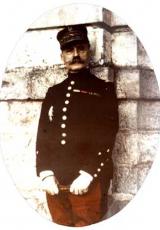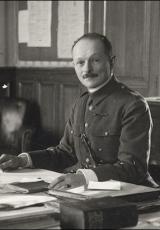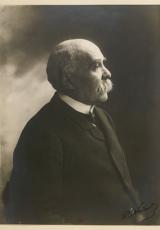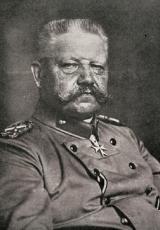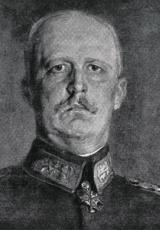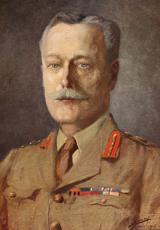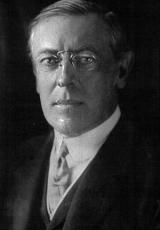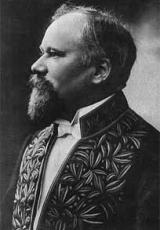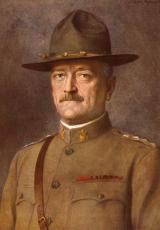21 mars 1918 - La bataille de Picardie sonne l'heure de Foch

Corps 1
21st March 1918 The battle of Picardy signals Foch's moment At the beginning of 1918, victory for the Allies was far from being secured. On the contrary, Hindenburg and Ludendorff had decided to carry out a decisive strike in the west. Their reckoning was simple: by bringing back German divisions from the eastern front, made available by the separate peace agreement signed with the Bolsheviks, the new rulers of Russia, the German army could change the balance of power along the western front to their advantage against the French and their allies. Victory had to be secured quickly because the enormous influx of American reinforcements from mid July onwards could turn this very balance of power upside down. The balance of power in March 1918 The Germans had 192 divisions of infantry (i.e. 3,500,000 men and 700,000 horses). 85 were in reserve and 59 were to attack in Picardy, supported by 6,200 artillery pieces.
Corps 2
By the end of 1917 the military situation on the ground had become, because of the removal of Russia from the equation, a lot better for us than we could have hoped ... It was in the army's interests to take the offensive ... More than 40 divisions were taken back to the west... In January and February (1918)... we had a superiority in numbers of around 25 to 30 divisions along the western front. extract from Général Erich Ludendorff's Memories of war, Payot 1920. On the allied side, there were 171 infantry divisions, made up of 99 French divisions under the command of Pétain, 58 British and two Portuguese under the command of Marshall Haig and 12 Belgian under the command of King Albert. Pétain kept 60 infantry divisions lined up, leaving a reserve of 39 divisions. He had 300 heavy Schneider and Saint-Chamond tanks and was hoping that the first 3,000 light Renault tanks on order would soon be operational. The German onslaught On the morning of the 21st March , the German offensive nicknamed operation "Michael" began violently along the 70km front in Picardy, between the Scarpe and Oise rivers. Ludendorff concentrated his efforts on the British army where it joined with the French army. Artillery preparation was short, about four hours, but violent - more than 6,000 guns flattened the defences. German assault teams avoided the stronger positions, infiltrating between the lines and, on the evening of the 21st, broke right through about ten kilometres of the front. Haig lacked the means to plug the gap and requested the intervention of French reserves from the Oise valley region.
About 100,000 men were made available by Pétain, but the German advance continued. On the 25th, changing direction towards Paris, they reached Noyon in the Oise region, having advanced more than 30 kilometres since the 21st. "A wide gap was already opening up between the right hand side of the 5th British army, who were retreating to the west, and the left side of the 6th French army. The road to Paris was opening up." Colonel. A. Grasset, "Foch or the desire to win", Berger-Levrault publishing, 1919.
In the allied camp anxiety was increasing by the hour. The British operating on the Somme were no longer co-ordinated enough to be able to resist. There were insufficient French reserves to stop the enemy troops. Differences of opinion emerged: Haig looked to cover Amiens and the valley of the Somme, protecting the Channel ports which ensured communications were maintained and the option of British withdrawal, while Pétain, who was waiting for another German offensive, possibly in the Champagne region, wanted to spare his reserves and cover the road to Paris. Within a few hours, the two governments had decided to hand over command of the Franco-British army to a single commander. Foch's moment The idea of having a single command seemed obvious, but its application came up against several difficulties: how could foreign generals, each obeying their respective governments, be made subordinate to one another? How would the people and officers react? What responsibilities should each individual chief be given? Should there be a single coordinator, a true authority along the whole western front with the title of "generalissimo"? In the autumn of 1914 Foch, the government's current military councillor, who had already been given responsibility by Joffre for co-ordinating Franco-British troops during the German offensives on the Yser canal, seemed to be the ideal candidate. Besides, since the end of January 1918, the upper war council had already put him in charge of the chairmanship of the military executive committee; this responsibility was not just theoretical: Foch was able to call on a strategic reserve of allied troops, which he could decide to deploy to any of the front's operational theatres. On the 25th March, in Compiègne, an initial inter-allied conference laid down the basis of a potential superior command position, which would be conferred upon General Foch. The following day, in Doullens, which was midway between the two general headquarters, a second conference brought together allied governments and military chiefs: lord Milner, representing Lloyd George, Generals Haig and Wilson for Great Britain and Clemenceau, with Poincaré, Pétain and Foch as the principal members of the French delegation.
As far as Haig and Pétain's anxiety was concerned, Foch displayed great self-confidence and above all a desire to fight and not surrender a single inch of land, which impressed all those taking part. A quick meeting between Clemenceau and Milner led to agreement between the two political figures over Foch; as Pétain and Haig approved the proposal, the Chairman of the French council put the decision of the conference immediately in writing: "General Foch is given the responsibility by the British and French governments for coordinating allied army action along the western front. This is in agreement with the generals in chief, who are asked to provide him with all necessary information." Appeal by General Pétain to his troops on the 25th March 1918, an emotional appeal: "The enemy has come at us with some supreme effort. They want to cut us off from the English to open up their route to Paris. We must stop them at all costs. Hold your ground! Stand fast! Comrades are on the way. Together you will throw yourselves at the invader. It's time for battle! Soldiers of the Marne, of the Yser and of Verdun, I appeal to you all: it is a question of the fate of France!"
On the ground, the situation was still critical. On the 27th, the Germans entered Montdidier. In less than a week, the offensive had advanced more than 50 kilometres and retaken areas that had been abandoned in the retreat of March 1917, as well as the battlefields of the Somme of 1916. Foch applied his plan: covering the capital without abandoning Amiens. As soon as they arrived, French divisions were launched into the battle. On the 28th, the American General Pershing made his army available to the new chief; Foch and Pétain decided to use the majority of them to relieve French divisions in the quiet sectors of the front. The reserves were at the front, the German advance ran out of steam and, on the 30th, was immobilised. Foch certainly had fulfilled his mission, but was not entirely satisfied with his title of "coordinator", as he did not know if, once the battle of Picardy was over, his authority would be brought into question. A new meeting of the Allies at their general headquarters in Beauvais on the 3rd April therefore granted him total responsibility for allied military operations along the western front. Referring to the historic precedent when, in 1814, the Austrian General Schwartzenberg had been given "strategic control of the war" at the head of a coalition of armies (Austrian, Russian and Prussian) against Napoleonic troops, Lloyd George and Clemenceau reached agreement on this purely military arrangement. This had the advantage of not offending any sensitivities and of not raising any legal problems as far as the British Parliament was concerned, although troops from the United Kingdom were under the authority of a French general.
By the beginning of April, the German offensive had been halted after advancing about 60 kilometres. Amiens was not to be taken and the battle of Picardy was over. Luddendorff was now to concentrate his efforts on the north of the British front, in Flanders, in order to try to take possession of the Channel ports.


